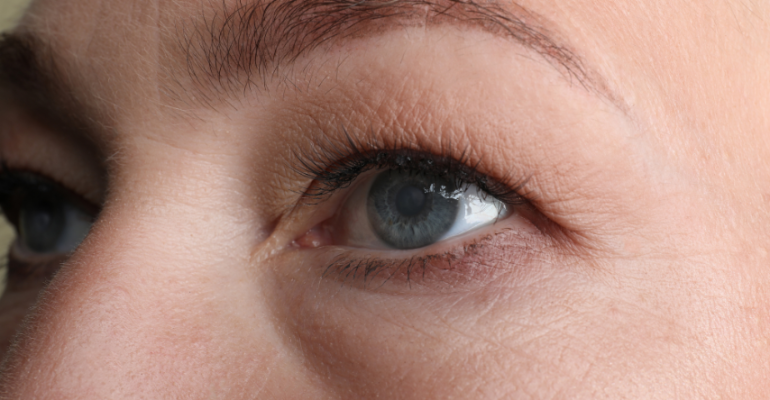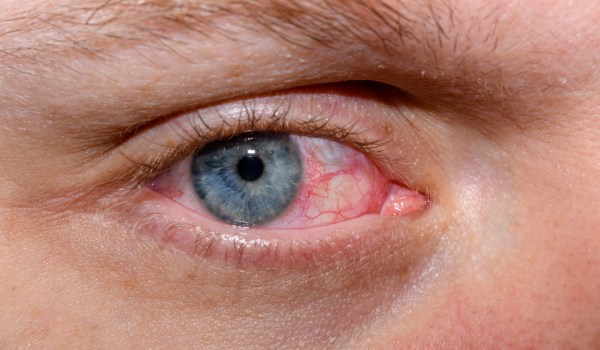Cataracts are a common eye condition that primarily affect individuals as they age, although they can develop in younger people as well. This clouding of the eye’s natural lens can significantly impact vision and, consequently, various aspects of one’s lifestyle.
In this article, we will delve into the nature of cataracts, their causes and symptoms, and explore the profound ways in which they can influence an individual’s daily life
Understanding Cataracts
Cataracts occur when the normally clear lens of the eye becomes cloudy, leading to a gradual loss of vision. The lens is responsible for focusing light onto the retina, allowing us to see sharp and clear images.
As cataracts develop, the lens becomes increasingly opaque, causing blurred or distorted vision. Some types of cataract cause clouding or frosting on the back surface of the lens which can cause significant symptoms of glare e.g. when driving at night. Cataracts can also change a spectacle prescription, typically leading to a small shift toward myopia (or short sight).
Causes of Cataracts
- While aging is the most common cause of cataracts, several other factors contribute to their development. These include:
- Genetics: A family history of cataracts may increase the likelihood of developing them.
- Medical conditions: Diabetes and certain eye diseases can elevate the risk of cataracts.
- Trauma or injury: Physical damage to the eye can accelerate the formation of cataracts.
Medications: Prolonged use of corticosteroids or other medications may contribute to cataract development. - UV radiation: Excessive exposure to ultraviolet (UV) rays from the sun may play a role in cataract formation.
Symptoms of Cataracts
- The symptoms of cataracts often develop gradually and may include:
- Blurred or cloudy vision: Individuals with cataracts often experience a gradual decline in the clarity of their vision.
- Sensitivity to light: Bright lights may become bothersome, causing discomfort. This can be particularly troublesome with oncoming headlights when driving in the dark.
- Difficulty seeing at night: Cataracts can make it challenging to see clearly in low-light conditions.
- Fading of colours: Colours may appear less vibrant or faded. Loss of colour density or shade is often difficult to appreciate until after cataract surgery. Colours often then appear whiter or more blue white as they are restored to normal.
- Double vision: Cataracts can cause double vision in one eye, so called monocular diplopia.
Impact on Lifestyle
Cataracts can have a profound impact on various aspects of an individual’s lifestyle, affecting their independence, daily activities, and overall quality of life.
We are strongly of the view that recovery from surgery allows a rapid return to activity and that it is often harder to resume activities that have been given up through poor vision because of loss of habit or practice, than it is to return to normal activity following surgery. Surgery shouldn’t slow you down! Most people will be able to return to driving, walking and being out and about within a few days or a week following surgery with minimal disruption to their lives.
1. Limitations in Daily Activities:
Reading becomes challenging due to blurred or distorted vision. People often tell us that they can still read with bright light or with a large font, but that it is less enjoyable so they tend to read less.
Driving may become unsafe, especially at night when cataracts can cause glare and halos around lights.
Difficulty recognizing faces and navigating crowded or unfamiliar environments.
2. Impact on Work
Careers that require precise vision, such as graphic design or surgery, may be adversely affected.
Productivity at work can decline as tasks become more challenging to complete with impaired vision.
Safety at work can be a real cause for concern, particularly for those working near machinery, at height or where driving is a requirement of work.
3. Emotional Well-being
Frustration and stress may arise from the limitations imposed by cataracts on daily activities.
Social withdrawal may occur as individuals may struggle with social interactions due to visual impairments.
4. Health and Safety Concerns:
- Increased risk of accidents and falls due to compromised depth perception and visual clarity.
- It is well documented that people who have had cataract surgery are less likely to fall or fracture a hip than those who do not.
- Medication management may become difficult, leading to potential health risks.
Treatment Options
The good news is that cataracts are treatable through modern surgical intervention. Cataract surgery involves removing the cloudy lens and replacing it with an artificial intraocular lens (IOL). This day case procedure is highly successful and has a rapid recovery time. Modern technology affords the use of many different types of IOL implant which can provide different functionality and which we address separately.
Conclusion
Cataracts are a prevalent eye condition that can significantly impact an individual’s lifestyle by affecting their vision and independence. Recognising the symptoms early and seeking timely medical intervention is crucial for maintaining a good quality of life.
With advancements in medical technology, cataract surgery has become a routine and highly successful procedure, allowing individuals to regain clear vision and resume their normal activities.
Regular eye exams and a proactive approach to eye health can go a long way in preventing, detecting, and managing cataracts effectively.
Medical Disclaimer
This article is for information purposes only and should not be considered medical advice. If you or any other person has a medical concern, you should consult with your health care provider or seek other professional medical treatment. Never disregard professional medical advice or delay in seeking it because of something that you have read on this blog, website or in any linked materials.







